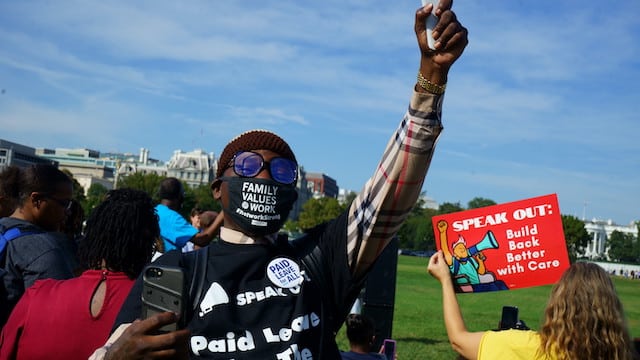The Irony of Labor Day

In New York City on September 5, 1882, 10,000 people walked from city hall, passing viewer stands on 42nd St., to Wendel’s Elm Park, where a picnic and other festivities awaited them. This was the first Labor Day parade, organized by the Central Labor Union, and many of the people there risked their jobs by participating.
The goal of this parade was to bring attention to the contributions workers had made to the US economy. Another goal was to advocate for an eight-hour workday and better working conditions and pay. Although the eight-hour workday wouldn’t be adopted on a federal level until 1916, within five years, states began passing bills recognizing Labor Day. Oregon was first in 1887.
It would take another strike for Labor Day to be nationally recognized. In 1894, during an economic depression, the Pullman Palace Car Company lowered worker wages but kept rents on company-owned housing high. Workers protested and President Cleveland called in the military to quell the strike, resulting in injuries and several deaths. Congress passed the bill making Labor Day a federal holiday to appease workers.
Since then, the meaning of the holiday has changed. For many, it’s the day when we again wonder aloud about why we’re supposed to stop wearing white or lament the end of summer — and the last three-day weekend until the winter holidays.
Some will hit the road for one more summer trip; others might take advantage of holiday sales and shop. What we sometimes forget, though, is that so much of our Labor Day enjoyment requires other people to work. And it’s not just emergency service workers, like nurses or EMTs. Those working include the gas station attendants we interact with during pit stops, hotel employees who check us in and out of our rooms, and servers who wait on our tables. Or the gig-economy driver who delivers our food or schleps us to and from Labor Day events. In fact, although Labor Day is supposed to be a time of rest and reflection on the contributions of the American worker, it’s often a time when those who earn the lowest wages and have the least job security are expected to show up to work. Retail employees, for example, will clock long hours so that we may buy one, get one or save a percentage on our items.
Labor Day has become an ironic holiday — but it doesn’t have to stay that way. We can both recognize that the day is a prime example of how the US fails to support its workers and recommit ourselves to thinking about what we could do to support workers we depend on.
One way to support all working people is by organizing for permanent, inclusive paid leave, paid sick days policies, and universal childcare to help us take care of those who take care of us. That policy would help workers like Margaret and Erica, who both lost jobs and benefits because they needed to care for an ailing parent. It allows workers like De’Leisa not to have to risk their health — and the health of others — to earn the wages they need to support themselves and their families. As Jibril Wallace says, illness is your body “giving you a sign that you need to rest.”
Making paid family and medical leave, paid sick days, and affordable childcare a universal right means workers won’t have to make the difficult decision of going to work or taking time to take care of themselves or others — not on Labor Day or any other day. They also won’t have to struggle to find and afford care for their children during their shift.
This Labor Day, let’s remember who we rely on to make our holidays restful and memorable. Let’s ensure that they, too, have the rights and resources to rest and recharge when they need. Let’s take the irony out of Labor Day by supporting policies that benefit us all.